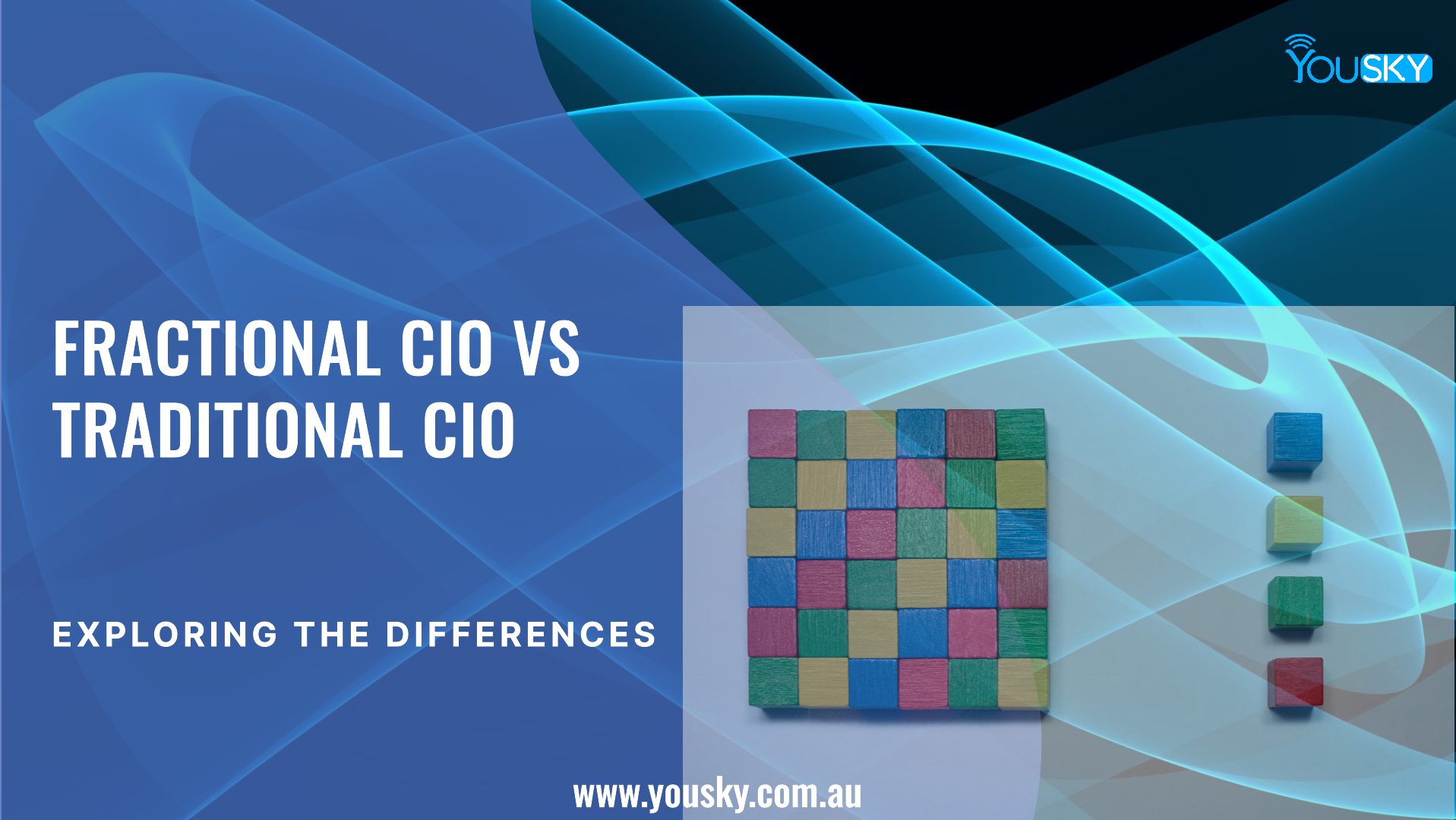
In today’s fast-paced business environment, the role of the Chief Information Officer (CIO) has undergone significant evolution. Traditionally, a CIO was a full-time executive responsible for overseeing an organization’s entire IT strategy, infrastructure, and operations. However, with the growing complexity of technology and varying business needs, the concept of the Fractional CIO has emerged as a viable alternative.
Traditional CIO: The Pillar of IT Leadership
The traditional CIO plays a crucial role in organizations, typically encompassing responsibilities such as:
1. Strategic IT Planning: Developing and aligning IT strategies with business objectives to drive growth and innovation.
2. IT Infrastructure Management: Overseeing the design, implementation, and maintenance of IT systems and networks to ensure reliability and scalability.
3. Budgeting and Cost Management: Managing IT budgets effectively to optimize resource allocation and support business goals.
4. Cybersecurity and Risk Management: Implementing robust cybersecurity measures to protect against threats and ensure data integrity and compliance.
5. Vendor and Stakeholder Management: Collaborating with external vendors, partners, and internal stakeholders to support IT operations and initiatives.
Traditionally, the CIO is a senior executive embedded within the organization’s leadership team, providing strategic direction and technical expertise to drive digital transformation and operational efficiency.
The Emergence of the Fractional CIO: Flexible Leadership for Modern Challenges
In contrast to the traditional model, the Fractional CIO offers a more flexible and scalable approach to IT leadership:
1. Part-Time Engagement: Fractional CIOs operate on a part-time or consultancy basis, providing strategic guidance and leadership as needed. This model is particularly beneficial for smaller organizations or startups that may not require a full-time CIO but still need expert IT oversight and strategic planning.
2. Specialized Expertise: Fractional CIOs often bring deep expertise in specific domains such as cybersecurity, cloud computing, data analytics, or digital transformation. This specialized knowledge allows businesses to access high-level strategic advice tailored to their unique needs, without the overhead costs associated with a full-time executive.
3. Cost-Effectiveness: Engaging a Fractional CIO can be more cost-effective for organizations, as they only pay for services rendered. This flexibility allows businesses to scale IT leadership according to fluctuating demands or project-specific requirements, optimizing resource allocation and budget management.
4. Objective Perspective: Fractional CIOs, operating in a consultancy capacity, provide an impartial and objective perspective on IT strategies and initiatives. This external viewpoint can be invaluable in challenging existing paradigms, introducing innovative solutions, and driving continuous improvement within the organization.
5. Agility and Adaptability: In today’s rapidly evolving technology landscape, businesses need agility and adaptability to stay competitive. Fractional CIOs are adept at quickly assessing emerging technologies, industry trends, and market dynamics, enabling organizations to respond swiftly and strategically to changes and opportunities.
Yousky’s Approach to Fractional CIO Services: Empowering Business Growth Through Strategic IT Leadership
At Yousky, we recognize the pivotal role of IT leadership in driving business success and innovation. Our Fractional CIO services are tailored to:
– Strategic Alignment: Collaborate closely with your executive team to align IT strategies with your business goals and objectives, ensuring that technology investments support and enhance your overall business strategy.
– Operational Excellence: Optimize IT operations and infrastructure to improve efficiency, reduce costs, and enhance scalability, leveraging best practices and innovative solutions tailored to your organizational needs.
– Cybersecurity and Risk Management: Implement robust cybersecurity strategies and governance frameworks to protect your critical assets, ensure regulatory compliance, and mitigate cyber threats effectively.
– Digital Transformation: Guide and accelerate your digital transformation journey by leveraging emerging technologies, data analytics, and cloud solutions to drive innovation, improve customer experiences, and unlock new growth opportunities.
In conclusion, while the traditional CIO model continues to be essential for many organizations, the Fractional CIO offers a flexible and cost-effective alternative for businesses seeking specialized expertise, strategic guidance, and agile IT leadership. By partnering with a Fractional CIO like Yousky, organizations can harness the power of tailored IT leadership to navigate complex challenges, drive innovation, and achieve sustainable growth in today’s digital economy.
As businesses embrace digital transformation and navigate the complexities of technological advancement, choosing the right IT leadership model—whether traditional or fractional—can significantly impact their ability to succeed, innovate, and maintain competitive advantage in an increasingly digital world. Reach out to Yousky to explore further about fractional CIO services.


